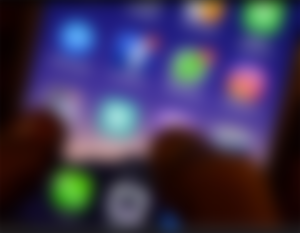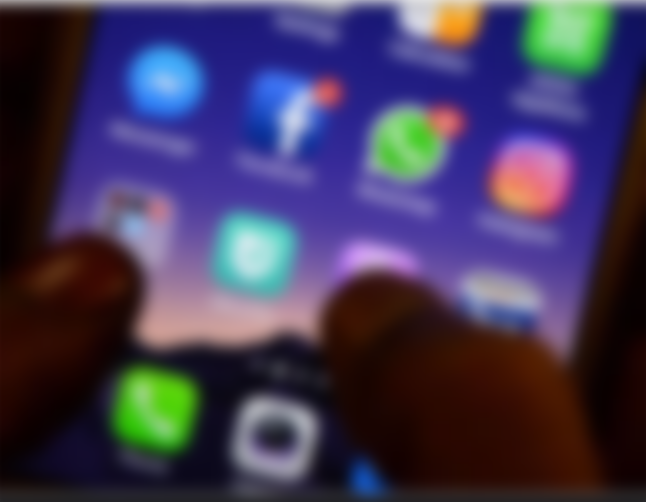
Communication has never been talked about as much as this year. Even in the focus of the domestic public during the state of emergency was the topic of how the state and the Crisis Staff communicate to their citizens. Communication was also discussed from a business perspective with a focus on teleworking. The emphasis is still on recovering the economy and preserving public health, and these topics continue to appear in the foreign media. What is still not given enough attention is how today, in the age of the pandemic, we communicate with each other, whether in a family or private context. How did the already changed models of communication adapt to the pandemic or did they go through another transformation?
In case your attention was not drawn to the Netflix documentary "The Social Dilemma", which I wrote about in one of the previous texts https://read.cash/@ruza17/nothing-great-comes-into-the-life-of-a-mortal-without-a-curse-sophocles-ffeaf001, and you still use social networks and chat applications without much thought to get information, send reactions and talk to your friends. , then you probably didn't think about the huge impact that technology has on changing interpersonal communication processes. With so many ways available to communicate, new norms have been formed that vary from group to group. Is it cultural to call someone directly by phone or is it necessary to announce by message? Is SMS being sent or are chat applications still in use? Should I give someone a phone number at all or simply "give them Instagram", which is less intrusive?

We are all spies Today, everything can be considered intrusive, even though we live in an era where we are all online and sharing information about ourselves "with our fists and hats". How do you find a job if you don't have a LinkedIn account? Do you know that most employers will search your first and last name on Google before inviting you for a job interview? He will look for your profiles on social networks, where he could collect information about you. What will be the reaction if you meet someone new and say that you do not have an account on any social network? If we are talking about intrusion, it may be more correct to say that everything that implies real contact in real time and space is intrusive today. Anything that involves actions under the grain online and stalking is considered expected. Anxiety is caused by the possibility of direct contact, voice or live. Everything else we can "fave" and "see" without consequences, with a lot of subtext that no one will force us to analyze

We are so connected, and we only communicate our ego
We live in a world that has never been so connected before. The Internet shortens space and time and allows us to learn more about events happening on the other side of the world. Only 30 years ago in Serbia we sent letters, telegrams and used a landline phone, while today, with an internet connection, we can not only communicate with the whole world, but also work in societies that have completely different cultural characteristics and business ethics.
In all this unprecedented connection, we spend most of our time on social media or using chat apps, communicating our ego or consuming someone else’s. Instead of giving us a global connection and a global perspective, an insight into burning problems at the world level, our view is narrowed down to one point.
Those who design digital products today use their knowledge of psychology not to motivate you to be interested in the challenges of global society and to inspire you to action, but to stick your gaze to the screen. Attention is the required currency, and you choose to waste your time.
Online communication and principles of the fast food industry

The first fast food restaurant was opened in America between the two world wars, and the real expansion of these restaurants began in the 40s and 50s of the 20th century. What distinguishes this industry is the speed of food preparation, where everything is already prepared in advance, and no more than half a minute passes from the order to the collection. Another feature is the standardized offer and the same taste, so guests always come back because they know exactly what they will get and what their needs will be met. And third, at a time when fast food restaurants were starting to open in America, it was the cheapest option for a delicious meal outside the home
By drawing rough parallels with fast food logic, it takes less than 30 seconds to launch a chat app or Instagram on your phone. It sometimes takes less time to respond or communicate. Online tools mold our communication and limit it to the functionality of the tool you choose, so you always come back there because there are no surprises, you always know the "taste" and the reaction that its use causes in you. Lastly, you don't usually pay to use these apps.
Instant communication, like any "out of the bag" solution, is too simplistic to be meaningful and truly meet your essential needs. Additionally, it raises big questions like adding meaning to actions that aren’t really actions but are conditioned by the digital product you use - how do you interpret someone just seeing your message and not responding, do you attach meaning to who constantly follows your Instagram stories, liking your old photo means that the person in question is extremely interested in you or is something completely different on Wednesday.

Coronavirus: clinical death offline
Even before the coronavirus pandemic, there was a change in the way we communicate. We embraced the new tools and understood the benefits of instant communication. What we haven't considered is the fact that new digital products, in addition to helping us communicate faster, also create new needs that we didn't have before. In addition to creating new needs, each user gives them a new meaning, for example, swipe on Tinder makes you feel powerful, with one swipe you decide who you like and who you don't.
Isolation and distancing have made online the only possible option for communication. Those who showed resistance to digital tools could choose between complete isolation and adaptation to the new reality. This situation re-created new needs and gave us the opportunity to give new meanings to Zoom backgrounds and turned off cameras.
Where next? The easiest answer, and the most difficult to realize - outside the comfort zone. There are no, and never will be, instant replacements for direct communication. Communication is not simple and no tool can simplify it, although perhaps our needs dictate simplification. Understanding what the other person wants to tell us, no matter how trivial the topic of conversation, is related to the essence of his being. How do you think you understand the essence, if you reduce communication to predefined reactions within one application?





I don't use WhatsApp, I text and I rarely talk lately! We've all become estranged, withdrawn and shut up!